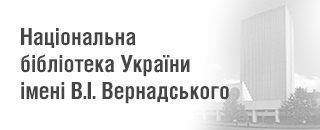FINANCING THE SPHERE OF CULTURE: FOREIGN EXPERIENCE
DOI:
https://doi.org/10.31470/2786-6246-2024-9-77-83Keywords:
public management, the sphere of culture, state cultural policy, the foreign experience of managing the sphere of culture, funding of the sphere of culture, cultural institutions, EU countries, reforming the sphere of cultureAbstract
The paper examines forms and methods of foreign practice that support an important social sphere of the state – culture and art. Forms of support for the culture and art development in European countries have been determined from direct state funding, grants, targeted transfers, counter-financing, and the use of particular forms of taxation to find additional investments in the culture sphere. The experience of financing this area as a whole and in the context of individual countries is analyzed and summarized. It is justified that each country forms its models of state funding, and there is a significant arsenal of tools for financial support of the culture sphere and art.
Each country is developing its model of state financing of culture and art, adequate to the national system of inter-budgetary relations and traditional directions of state support in this area. At the same time, all countries have a common approach to culture as a factor of not only spiritual but also economic progress of society. With all the diversity of its branches and the difference in their financial status, the sphere of culture and art is considered a single important sector of the national economy, the development of which requires the state to take comprehensive measures to support the formation of a comprehensive concept of state regulation of culture, which is a necessary prerequisite for ensuring an effective national policy in this field. The author noted that, against the background of foreign practice, the system of financing Ukrainian cultural industries and institutions appears to be more conservative and ineffective. Due to guaranteed financing, cultural institutions have not developed immunity to market relations. As a result, they are not characterized by aspirations of independent funding and development - adapted to market conditions.
On the basis of the conclusions made, recommendations are given for developing a set of measures for implementing positive foreign experience in financing the sphere of culture in the conditions of Ukraine. It was determined that the cultural sphere is the most crucial link in the development of Ukrainian society, which contributes to the development of the national worldview. Therefore, researching the financial support of the cultural sector and introducing the latest technologies to ensure the functioning of the cultural industry is particularly important in the current realities.
References
Vashchuka, F.H. (2011). Intehratsiia v yevropeiskyi osvitnii prostir: zdobutky, problemy, perspektyvy [Integration into the European educational space: achievements, problems, prospects]. Uzhhorod: ZakDU [in Ukrainian].
Kohut, O.V. Katehoriia «publichna bezpeka ta poriadok» vitchyznianyi i zarubizhnyi dosvid [Category “public safety and order” domestic and foreign experience]. Retrieved from http://jlsouk.donnu.edu.ua [in Ukrainian].
Kolisnyk, H.M. (2018). Zarubizhnyi dosvid derzhavnoho rehuliuvannia sotsialno-kulturnoi sfery ta yoho adaptatsiia v Ukraini [Foreign experience of state regulation of the social and cultural sphere and its adaptation in Ukraine]. Rehionalna ekonomika – Regional economy, 1 (129), 144–147 [in Ukrainian].
Merzliak, A.V., & Ohnarov, Ye.S. (2017). Derzhavne upravlinnia sferoiu kultury: vitchyznianyi ta zarubizhnyi dosvid [State management of the sphere of culture: domestic and foreign experience]. Publichne administruvannia: teoriia ta praktyka – Public administration: theory and practice, 1 (17). Retrieved from http://nbuv.gov.ua/UJRN/ Patp_2017_1_4 [in Ukrainian].
Storchai, N.M., Symonenko, L.I., & Dovzhenko, V.A. (2020). Finansova spromozhnist biudzhetiv obiednanykh terytorialnykh hromad v umovakh realizatsii administratyvno-terytorialnoireformy [Financial capacity of the budgets of united territorial communities in the conditions of implementation of the administrative-territorial reform]. Ekonomika ta derzhava – Economy and the state, 2, 104–109 [in Ukrainian].




